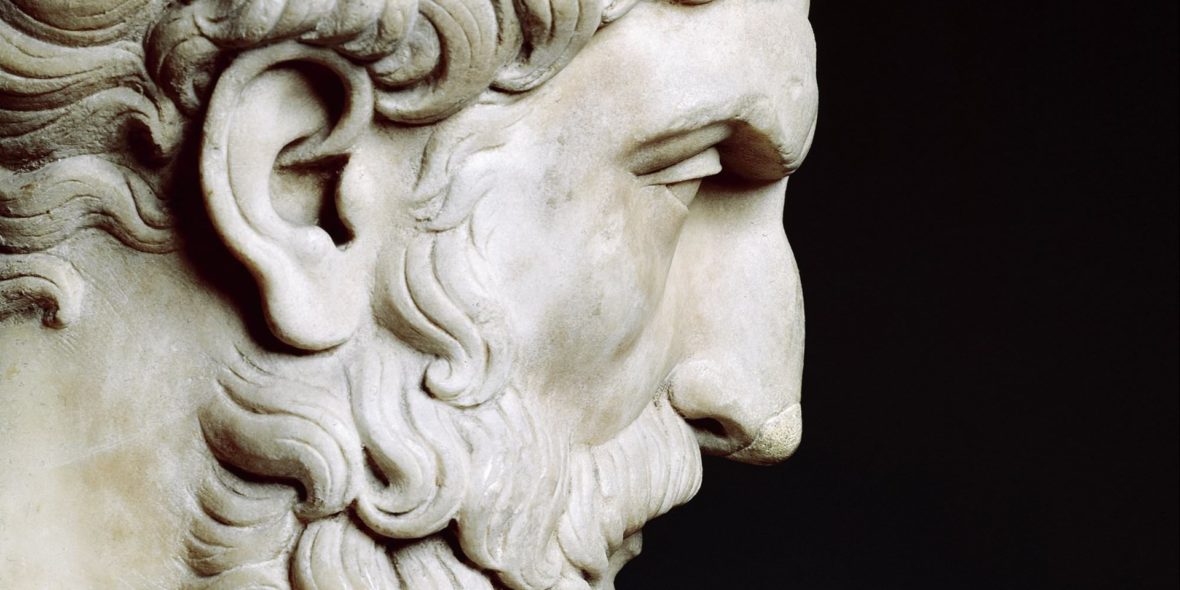Epicurus was an ancient Greek philosopher who founded a school of philosophy now called Epicureanism. Only a few fragments and letters of Epicurus’s 300 written works remain. Most of what is known about Epicurean philosophy derives from later followers and commentators. Take a look below for 30 more awesome and interesting facts about Epicurus.
1. For Epicurus, the purpose of philosophy was to attain the happy, tranquil life, characterized by ataraxia, peace and freedom from fear, and aponia, the absence of pain, and by living a self-sufficient life surrounded by friends.
2. He taught that the root of all human neurosis was death denial, and the tendency for human beings to assume that death will be horrific and painful, which he claimed causes unnecessary anxiety, selfish self-protective behaviors, and hypocrisy.
3. According to Epicurus, death is the end of both the body and the soul and, therefore, should not be feared.
4. He taught that the gods neither reward nor punish humans; that the universe is infinite and eternal; and that occurrences in the natural world are ultimately the result of atoms moving and interacting in empty space.
5. Epicurus was born in February 341 BCE to Neocles and Chaerestrate.
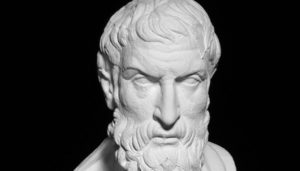
6. His father had migrated to the Athenian settlement on the Aegean island of Samos a few years before the birth of Epicurus.
7. He was raised in Samos only.
8. Epicurus studied philosophy under the Platonist teacher, Pamphilus, for four years.
9. At the age of 18, he went to Athens for his two years of military service.
10. After finishing his military service, Epicurus joined his family in Colophon. There, he studied under Nausiphanes, who taught him the teachings of Democritus.
11. Between 311 BCE to 310 BCE, he taught in Mytilene, but after some discord, he had to leave the city.
12. Epicurus went to Lampsacus, where he founded a school.
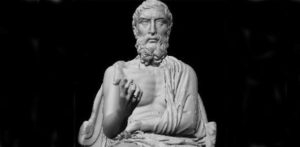
13. Epicurus returned to Athens in 306 BCE and stayed in the city until his death in 270 BCE. In Athens, he bought some land and founded a school named “The Garden.”
14. His school became a notable institute for the progress of philosophical education, and it also held the exclusivity of being the first philosophical Greek institute that allowed women to take part in academic endeavors.
15. Epicurus strongly advocated friendship as an important catalyst for a happy and fulfilling life, and thus, his school provided the community with the opportunity to interact and form constructive relationships.
16. Epicurus played an important role in the progress of science as a discipline, and his accentuation of the employment of direct observations and logical deductions has immensely contributed to the advancement of scientific research methods.
17. Elements of Epicurean philosophy have resonated and resurfaced in various diverse thinkers and movements throughout Western intellectual history.
18. The atomic poems, such as “All Things are Governed by Atoms” and the philosophy of naturalism espoused by Margaret Cavendish were influenced by Epicurus.
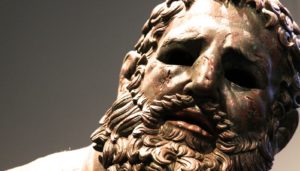
19. His emphasis on minimizing harm and maximizing happiness in his formulation of the “Ethic of Reciprocity” was later picked up by the democratic thinkers of the French Revolution.
20. In Greece, in February of every year since 2011, a two-day Panhellenic Symposium of Epicurean Philosophy is held.
21. Paul the Apostle encountered Epicurean and Stoic philosophers as he was ministering in Athens.
22. Horace describes himself as “a swine from Epicurus’s herd” in his “Epistles.”
23. In Canto X Circle 6, of Dante‘s Inferno, Epicurus and his followers are criticized for supporting a materialistic ideal when they are mentioned to have been condemned to the Circle of Heresy.
24. In Rabbinic literature, the term “Epikoros” is used, without a specific reference to Epicurus, yet it seems apparent that the term was derived from his name.
25. Epicurus’s apparent hedonistic views and philosophical teachings, though opposed to the Hedonists of his time, countered Jewish scripture, the strictly monotheistic conception of God in Judaism and the Jewish belief int he afterlife and the world to come.
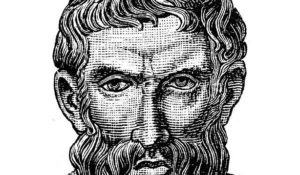
26. According to Epicurus, religious activities were important ways to muse over God and set examples for a pleasant life.
27. His philosophy claims that all the good and bad that happen to people are based on pleasure and pain.
28. Epicurus suffered from kidney stones when he died in 270 BCE.
29. He was 72 years old when he died.
30. Epicurus had no heirs or sons as he never married in his life.

